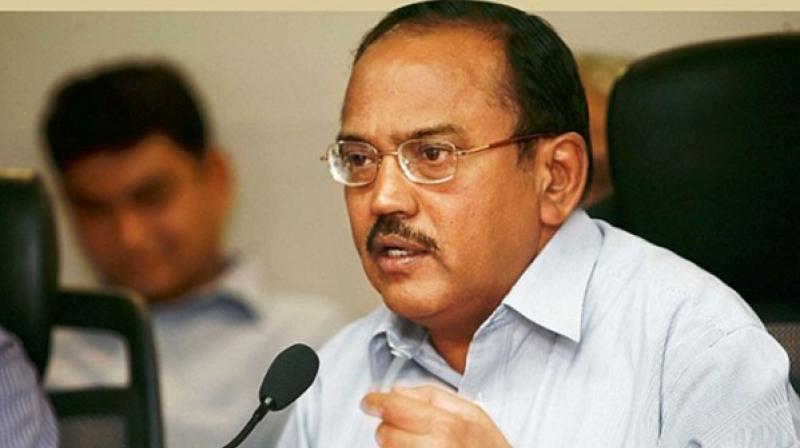Doval still PM’s top aide, now with Cabinet status

The buzz around national security adviser Ajit Doval being given Cabinet rank, and a five-year extension, by Prime Minister Narendra Modi has no real weight or substance. The announcement, which came on Monday, merely reaffirms the current reality.
Not counting BJP president Amit Shah, who is now also the Union home minister, no official — political or bureaucratic — was as crucial as the NSA in the wider scheme of things in the duration of the first Modi government. With minor, protocol-related adjustments, which Mr Doval's newly elevated status signifies, this state of affairs is likely to continue.
This is the meaning of raising the NSA to Cabinet rank. His renewed five-year term would suggest that while ministers are prone to be chopped and changed for political considerations, Mr Doval will have a secure tenure unless something goes seriously wrong.
Mr Doval’s real status can be gauged from the fact that no former NSA — not even the late Brajesh Mishra, who was considered the virtual deputy prime minister under Atal Behari Vajpayee — enjoyed the rank of Cabinet minister. In the first Modi government, Mr Doval was the de facto home minister and defence minister rolled into one. The intelligence chiefs reported to him, as did the chiefs of the three armed services virtually, though none of this happened in a demonstrative way. It was whispered that the current Army Chief, in whose case the seniority principle was breached, owed his position to the NSA. The NSA had a strong role in defence acquisitions as well, though not a constitutional one.
Even before the late Manohar Parrikar was taken seriously ill as defence minister, it was the NSA who was involved in the Rafale purchase negotiations on the PM’s behalf. Then defence minister Parrikar and then foreign secretary Subrahmanyam Jaishankar, who is now the external affairs minister, had a serious understanding of the negotiations with Paris, especially in the early stages when the switch from DRDO was being made and a controversial Indian company inducted as the main offset partner — a matter that erupted into a huge political controversy. Since he was not a minister, Mr Doval could not be in the Cabinet Committee on Security (CCS).
The ministers of home, defence, finance and external affairs constitute this core committee led by the PM. But the NSA was an invitee. Now that Mr Jaishankar is in the Cabinet, in protocol terms the NSA may have been handicapped since he had been ahead of the foreign secretary in rank in the earlier Modi government. Raising Mr Doval’s protocol status offers him some parity.
The NSA can thus continue to remain as important for the PM as he was previously. Since Kashmir is the home minister’s charge, it is Mr Shah who may be expected to give political direction, but Mr Doval will be the real pointman. There will be no ideological dissonance in this matrix.

